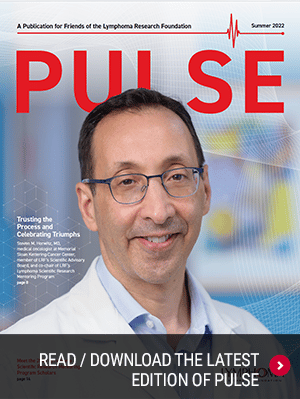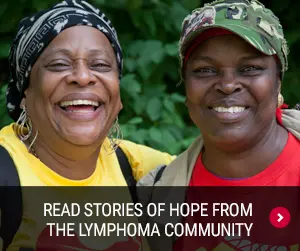
Latest News
Ask the Doctor: What is the difference between a partial response to testing and having undetectable minimal residual disease (MRD)?

People with chronic lymphocytic leukemia (CLL)/small lymphocytic lymphoma (SLL) can have a range of responses after treatment. Testing is done to determine these responses, which can include complete response and partial response, and now with newer advanced testing, whether a patient has detectable or undetectable minimal residual disease. The criteria for these responses are based on the levels of CLL/SLL cells left in the body following treatment. Bruce Cheson, MD, FACP, FAAAS, FASCO, Scientific Advisor to the Lymphoma Research Foundation (LRF) and practitioner at the Center for Cancer and Blood Disorders in Bethesda, MD discusses partial response in the context of MRD testing when evaluating a CLL patients’ response to treatment.
What is the difference between a partial response to testing and having undetectable minimal residual disease (MRD)?
A partial response to testing means that there has been a decrease in the amount of CLL, but there is still enough present to be detected by the assay (test) that is being used. Being undetectable is a better term than “negative” as it means that, whatever the minimal residual disease (MRD) test being used, no CLL cells can be found. However, it is dependent on the test. Some tests, such as flow cytometry, can detect a CLL cell down to the level of 1 cell in 10,000 (10-4). However, other tests are more sensitive and can detect 1 cell in a million (10-6). Therefore, even if CLL is “undetectable” by flow cytometry, it may still be detectable by circulating tumor DNA, next-generation sequencing, or a similar assay.
Learn About Chronic Lymphocytic Leukemia/ Small Lymphocytic Lymphoma (CLL/SLL)
LRF is committed to providing those impacted by lymphoma with the resources they need to understand their disease. To ensure that patients and their loved ones make the most informed decisions about their care, the Foundation developed a comprehensive learning center for chronic lymphocytic leukemia/ small lymphocytic lymphoma (CLL/SLL).
This MRD eUpdate is supported through unrestricted grants from AbbVie, Inc and Adaptive Biotechnologies.


